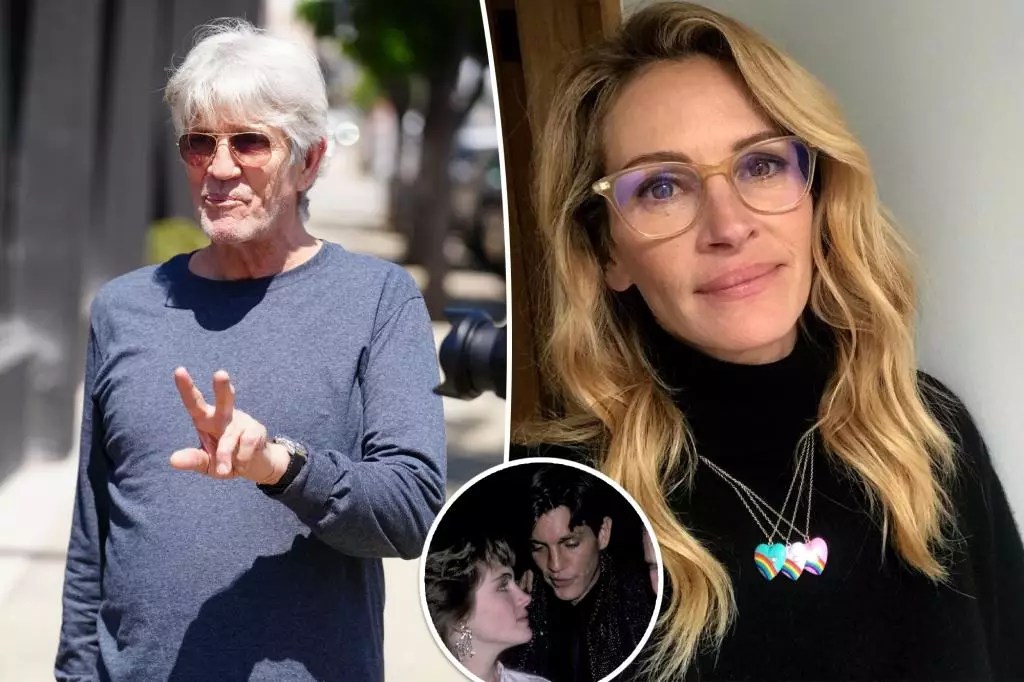Eric Roberts, known for his own acting credentials and as the older brother of Hollywood superstar Julia Roberts, recently stirred the pot with a public apology that has reverberated through the entertainment community. In his upcoming memoir, “Runaway Train: Or the Story of My Life So Far,” he expresses remorse for previously taking undue credit for his sister’s illustrious career. This admission, while late in arriving, unveils the complexities of sibling relationships in the high-stakes arena of celebrity.
Over the years, Eric has made several head-turning statements regarding his influence on Julia’s ascent in Hollywood. Remarkably, in a 2018 interview with Vanity Fair, he boldly claimed, “If it wasn’t for me, there would be no Julia Roberts and no Emma Roberts as celebrities.” This assertion painted a picture of a familial hierarchy that, while not entirely unfounded, was perhaps exaggerated. Eric’s self-importance extended to boasting about his own accolades in comparison to Julia’s achievements, insisting that he “was first” to receive nominations for prestigious awards like the Golden Globe and the Academy Award. Such declarations, while perhaps made with a sense of sibling pride, clouded the genuine merit of Julia’s accomplishments.
Both Roberts siblings have navigated the entertainment industry in markedly different styles. Eric’s journey began at a young age and was marked by notable achievements, including his breakout role in 1978’s “King of the Gypsies” and an Oscar nomination for “Runaway Train.” However, despite these early successes, Julia’s career trajectory eclipsed his. With major hits like “Pretty Woman” and an Academy Award for “Erin Brockovich,” she cemented her place as one of Hollywood’s most bankable stars. Eric’s admission in the memoir that he might forever be recognized primarily as “Julia’s brother” underscores the often harsh reality of sibling dynamic within the demanding world of film and television.
Adding layers to his narrative, Eric acknowledges how his struggles with addiction affected not just his career but also his family dynamics. His fight against cocaine addiction led to significant personal loss, including the custody of his daughter, Emma. Through his memoir, he reflects on how these struggles created distance between him and Julia, as well as their other sister, Lisa. Eric’s candidness about the potential trauma inflicted on his loved ones during this tumultuous time is both revealing and heartbreaking. He relays an understanding of the long-term impact his behavior might have had on those closest to him, suggesting that his family may have endured an emotional fallout akin to PTSD due to the circumstances surrounding his addiction.
Despite the rocky relationship portrayed in his past remarks, Eric recently expressed a desire for reconciliation and healing. During an appearance on the “Still Here Hollywood” podcast, he mentioned being unable to speak candidly about Julia or Emma—indicative of the complexity of their relationships. However, he quickly shifted focus to share his admiration for his daughter Emma’s work, asserting his pride and love for her endeavors. Eric’s public declarations of affection for his family reveal a softer side that contrasts with his previous bravado, hinting at a desire to mend the bonds that may have frayed in the shadows of public scrutiny.
In his memoir, Eric Roberts signifies a transformative journey of self-awareness and personal growth, illustrating the evolution of his character from the brash claims of yesteryears to the humble introspection of today. By taking ownership of his missteps and offering a heartfelt apology to his sister, he sets the stage for a new chapter—not only in his life but in their relationship. This narrative of regret and hope serves as a reminder that even in the glitzy world of fame and fortune, the human experience is fraught with challenges that require healing and understanding. As “Runaway Train” hits the shelves, it invites readers to ponder the complexities of familial bonds, the repercussions of addiction, and the long path toward forgiveness and reconciliation, both within oneself and amongst loved ones.







Leave a Reply